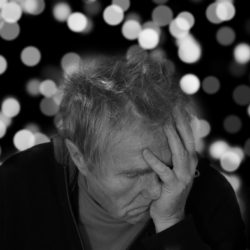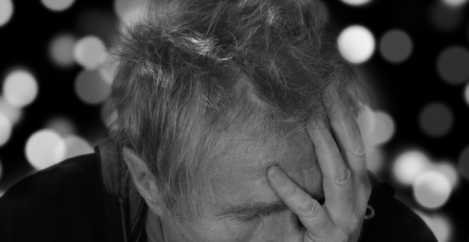September 11, 2020
The mental health consequences of COVID grow increasingly clear
 The number of self-employed people saying they have “poor” or “very poor” mental health has increased from 6 percent to 26 percent since the beginning of the pandemic (a 300 percent rise), claims new research by IPSE (the Association of Independent Professionals and the Self-Employed). The number saying they had “good” or “excellent” mental health has also dropped significantly since the beginning of the pandemic – from two-thirds (68 percent) to just over a third (39 percent). This was most severe among women (a drop of 54 percent) and young freelancers aged 16-34 (a drop of 49 percent).
The number of self-employed people saying they have “poor” or “very poor” mental health has increased from 6 percent to 26 percent since the beginning of the pandemic (a 300 percent rise), claims new research by IPSE (the Association of Independent Professionals and the Self-Employed). The number saying they had “good” or “excellent” mental health has also dropped significantly since the beginning of the pandemic – from two-thirds (68 percent) to just over a third (39 percent). This was most severe among women (a drop of 54 percent) and young freelancers aged 16-34 (a drop of 49 percent).
A third of freelancers (32 percent) now say they are highly stressed, with serious negative consequences. Half (48 percent) said they felt depressed or anxious because of stress – and the same proportion said they felt they were also less productive. 47 percent of stressed freelancers said they were losing sleep because of worry and 46 percent said they felt a reduction in their confidence and energy. Just over a fifth (22 percent) said they had even lost clients because of job-related stress.
To counter this, two-thirds of freelancers (67 percent) said they made time to exercise, while half also said they make sure they get enough sleep and make time for hobbies and entertainment to support their mental health. 49 percent also said they try to maintain a healthy diet to boost their mental health.
One thing few freelancers seem to be doing to maintain or improve their health is seeking advice. Just 17 percent said they had accessed support for their health, including: information and advice online (12 percent), counselling/therapy sessions (7 percent) or mental health helplines (1 percent) during the pandemic.
Recommendations:
• Make Covid-19 self-employed support flexible and fair as we emerge from lockdown
• Provide and promote mental health support tailored to freelancers
• Make sure freelancers can take part in the training and skills revolution
• Promote co-working spaces and extend business rate relief from small businesses to workhubs.
• Encourage clients to consider their freelancers’ mental health and adhere to best practice guidelines.
[perfectpullquote align=”right” bordertop=”false” cite=”” link=”” color=”” class=”” size=””]“Lockdown and the pandemic have clearly shaken the mental health of the freelancing sector.”[/perfectpullquote]
Chloé Jepps, Head of Research at IPSE (the Association of Independent Professionals and the Self-Employed), said: “Lockdown and the pandemic have clearly shaken the mental health of the freelancing sector. Before the pandemic, many people went freelance for the freedom and flexibility.
“Now, however, with financial worries mounting and not enough support from government, one in four freelancers are struggling with their mental health. This is a simmering crisis for freelancers across the UK – and one that government and industry have to confront.
“One of the most practical things government can do is help stave off the financial worries of freelancers and the self-employed, since this sector has been hit harder than most by lockdown and the pandemic. The government should make sure there is no cliff-edge to its support schemes and that any further support is open to all the self-employed, not just a proportion.
“We also believe it is vital government and industry begin promoting mental health advice and guidance that is tailored to freelancers. This essential and large part of the workforce has not had the mental health support it needs and in the current financial turmoil, that need is more urgent than ever.”
Read the full report here.
Image by Gerd Altmann















